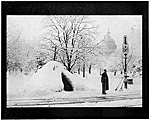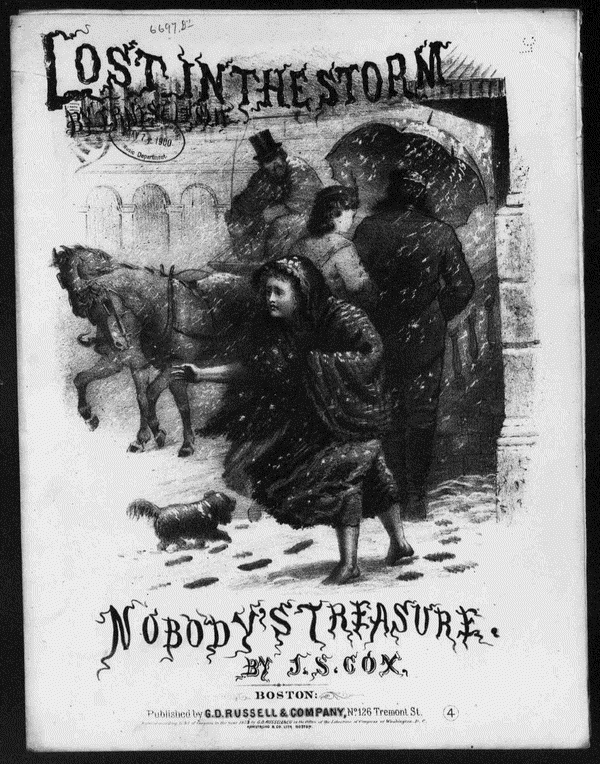Image Analysis:
1. When and where was this
image captured?
2. What is happening in this
image?
3. What specific people/objects do
you see?
4. What do you notice about the
object's condition or the people's
expressions or appearance?
5. Why would the person
choose this particular scene to
capture?
6. What information do the words
accompanying the image
provide?
7. What is missing from the
image?
8. What problems for people are
suggested by the images?
9. What is interesting or surprising
about this image?
10. What additional information
about the event did you learn from
this image?
Personal Account Analysis:
1. When and where did this interview take place?
2. What encounter with nature is described in this personal account?
3. How long after the event occurred was this inteview made?
4. What words or phrases best create a visual image of the event?
5. What attitude towards this event does the person seem to have?
6. Who or what at does this person seem to believe is responsible for
this event occurring?
7. What problems or effects does the event seem to have had on people's
lives?
8. What lesson does this person seem to have learned from this
event?
9. Is there anything interesting or surprising to you about this person's
reaction to the situation?
10. What new insights into the natural event does this interview provide
you?
Lyric Analysis:
1. If there is a cover to this piece of sheet music, examine it carefully.
What message does the cover give you about the event?
2. What natural event is this song about?
3. Read through the lyrics. Write a summary describing the main
idea of the song.
4. List any words in the song with which you are not familiar. Find
their meanings in a dictionary.
5. Choose one or two phrases of the song that are interesting to you.
Explain why they caught your attention.
6. Who or what does the song writer feel is responsible for the event?
7. What problems or effects of the event are mentioned in the song?
8. What new insights does this song give you about the event described?
9. What surprises you about the song?
10. What questions do you have?
Additional Resources:
1. What additional information
about the event did the other sources
provide?
|

[ Man standing by snow hut, after blizzard of 1888(?), with U.S. Capitol
in background, Washington, D.C.]
Touring
Turn-of-the-Century America: Photographs from the Detroit Publishing Company,
1880-1920, Library of Congress
Personal Account:
Weatherlore: Blizzards, Hurricane.
Francis Donovan
Thomaston, Connecticut
December 19, 1938
Today's light snowstorm reminds Mr. Botsford of the snows of yesteryear
and he expresses the belief that "they don't have the snow and the winters
any more" they had when he was young. His reminiscence inevitably centers
on the big blizzard of '88. Says he:
"The 10th of March fell on a Saturday, I believe, and it was the most
beautiful spring day you ever saw. Lots of people went to Waterbury or
New Haven to spend the week-end and everybody was glad that winter was
over.
"We went to church Sunday night and when we came out it had started
to snow. It snowed all night, heavy, but the next morning people went to
the shop as usual. I didn't carry no dinner and my father didn't either.
When noon came, my father says, 'Art I'm not goin' home, but you go on
home.' So I did.
"The snow at noon was just like that snow we had four years ago--just
as deep. And the thermometer was at zero or lower, all the time, and it
was blowing hard. I climb over a couple of fences, on my way home. I got
down by J. C. Spencer's store, and old J.C. and some other feller was standin'
in the doorway, and there was a
drift up as high as their heads outside.
"That afternoon the Clock Company team with a big sled took all the
girls home. Jim Blaine was drivin' and when he took the girls over to the
Yellow Row, over on Chapel street, the drifts was so deep he could hardly
turn the horses around.
"I couldn't see ten feet ahead of me, comin' home that afternoon. Snow
was up to my waist. Father got home ahead of me, but how he did it, I don't
know. He must have passed me on the way, and neither one of us knew it.
It kept snowin' all day Tuesday, and Wednesday when I went up town there
was a drift way over your head clear from the town hall across to Woodruff's
house. The boys had dug tunnels to get in and out of the Hose house.
"Them people that had gone out of town to spend the weekend never got
home till Thursday afternoon, when the first train pulled into the depot
over here. Old Dwight Cornell, who lived up on Hickory hill where Schinzel
lives now, he stopped in one of those houses on Litchfield street, used
to call it the Mill house, and he never got
home till Thursday mornin'.
"Warren Westwood and Bill Woods, who lived up in Harwinton, and used
to drive team down here to work, they started out Monday noon. They bought
a snow shovel, and they said by God they'd get through. They got stuck
in a big drift miles from home. One of them got the horse out and got on
his back and the other took hold of the horses' tail. They hadn't got very
far this way when the horse dropped dead. They plodded on, makin' their
way the best they could by what landmarks they could recognize. They climb
over stone walls, and dead trees and fell down I don't know how many times,
and they was near exhausted.
"You heard how people get when they're in that condition. Westwood wanted
to lay down and rest. But Woods, his son-in-law, he pinched him and slapped
him, made him keep on his feet.
"They finally got to the barn of their house. And they found
that the neighbors had been over and took care of the cows and locked
the barn. Now Woods got discouraged, and he wanted to lay down by the barn,
and Westwood, it was his turn to do the pinchin' and slappin'. They made
their way to the house at last and fell up against the door and Mrs. Woods
opened it and dragged 'em both inside. They was both in bad shape. Had
their fingers and ears and nose and their chins frozen. It was three weeks
before either of them came to work again.
"And that was only a sample of what people went through.
"Nobody died here, that I remember. They pulled a few out of snowdrifts.
In the cities a lot died. That was the worst snowstorm there ever was.
And it was such beautiful weather before -- nobody could realize what was
comin'.
"Oh, yes, I guess this hurricane last fall took more lives and did more
property damage. It was a worse catastrophe, no doubt about it. But back
in eighty-eight we was cut off from everything. We depended on the railroad
for supplies.
"It wasn't no time at all before the fresh meat in the stores was exhausted,
and then the canned meat and the salt meat. The first milkmen that got
through was besieged with people offering 25 to 50 cents a quart for milk.
Some sold out for what they could get. Others were faithful to their customers
and wouldn't give it to nobody else. And these were the ones that benefitted
in the long run, for them that deserted their customers were remembered
for it when the snow was all gone and people wouldn't buy from them.
"I went to church the next Sunday, I remember, the sun was shinin' nice
and bright, and over at Burr Reed's market in the center, just as church
was over, a sled owned by Ralph N. Blakeslee of Waterbury drove up with
a supply of meat. The butchers and the meat cutters was in church --they
was more church goin' people than there is today --and they went over and
opened up the store and the people flocked in and they began to sell meat
--Sunday or no Sunday.
The snow hung on for a long time. I see some on the green in New Haven
in June, that year. They threw some off the wharves down there, and some
they piled up on the green, and there it stayed, in a big frozen heap.
"'Course that was an extreme example --that will prob'ly never happen
again. But they don't have the winters they used to.
Source
document
American
Life Histories: Manuscripts from the Federal Writers' Project, 1936-1940,
Library of Congress
Lyrics:

Lost in the Storm
Lost in the heart of the beautiful city
Only the angels kept watch of her form,
Only the angels smiled on her in pity,
Poor little wanderer lost in the storm.
All the long day had the cold wind been blowing,
All the long day she'd been asking for aid,
Never a kind hand a penny bestowing,
Never a step by her pleading was stay'd.
White was the snow that had drifted around her
Weaving a shroud for the beautiful form.
In the grey light of the morning they finally found her
Poor little wanderer, lost in the storm.
Mother's fond lips for the last time had blest her
Now in the darkness all weary and cold,
Only the soft falling snow flakes caressed her,
Turning to tears on the ringlets of gold,
Sadly she watched for the 'morrow's bright dawning,
Counting the hours in their wearisome flight,
Poor little feet to a pathway were turning,
Out of the reach of the storm and the night.
White was the snow that had drifted around her
Weaving a shroud for the beautiful form.
In the grey light of the morning they finally found her
Poor little wanderer, lost in the storm.
Source
document: Lost in the storm / by Ernest Leslie.
Music
for the Nation: American Sheet Music, 1870-1885, Library of Congress
Other Resources
Historic Nor'easters
How
to Dispose of Snow (1888 article)
Blizzard
Precautions
Back to Nature's Fury Home
Page
Nature's Fury web pages published and maintained by P.
Solfest and K. Wardean
E-mail comments welcome at:
psolfest@altoona.k12.wi.us
kwardean@altoona.k12.wi.us
|
|
